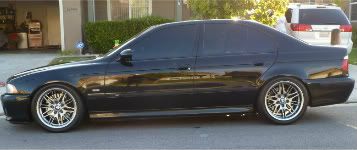So my credit cards are now past due, they were due on the 2nd but i had no money to pay them. Im getting paid on Friday and i just sold my Jeep.
On Friday i will be paying the cards completely off, how do you think this will affect my credit?
Recently i went to a Scion dealer to buy a daily driver and they said i don't have alot of credit history. Anyone have suggestions on how i can build my credit up?
Thanks
On Friday i will be paying the cards completely off, how do you think this will affect my credit?
Recently i went to a Scion dealer to buy a daily driver and they said i don't have alot of credit history. Anyone have suggestions on how i can build my credit up?
Thanks





Comment